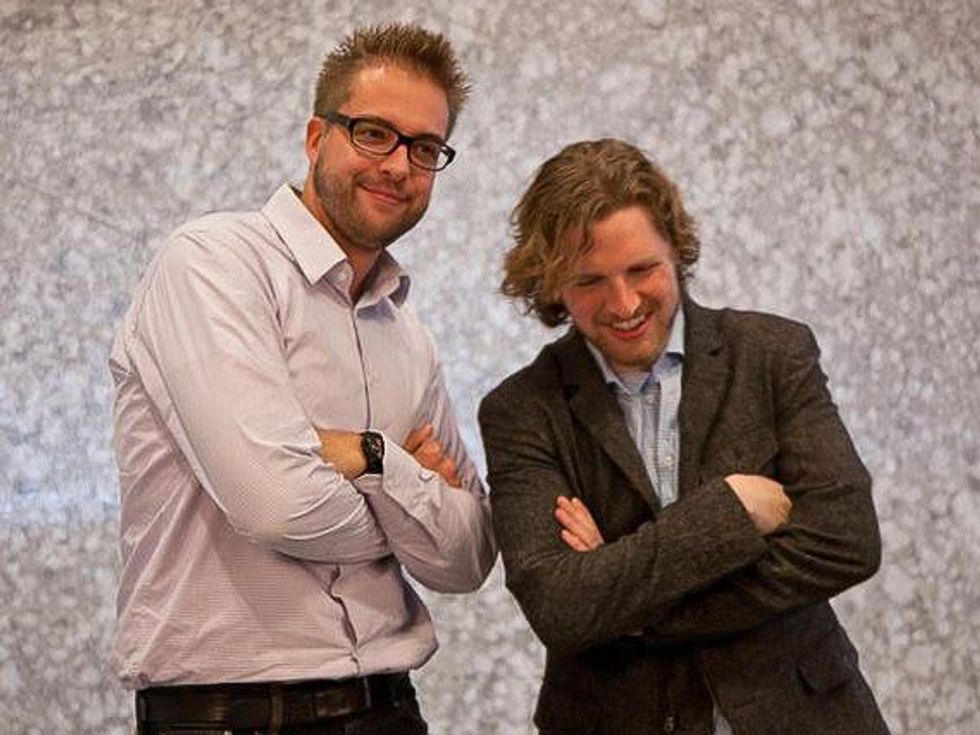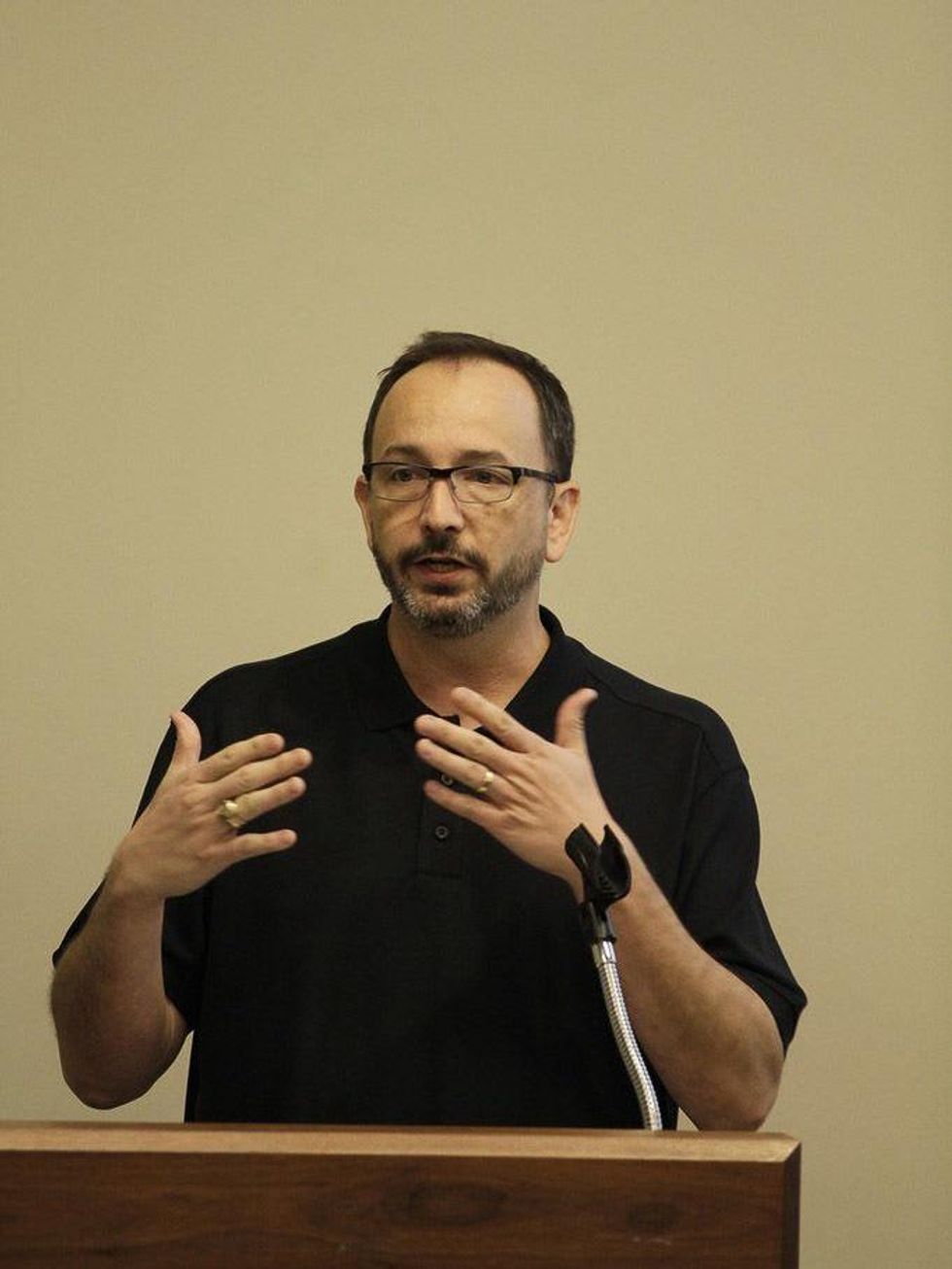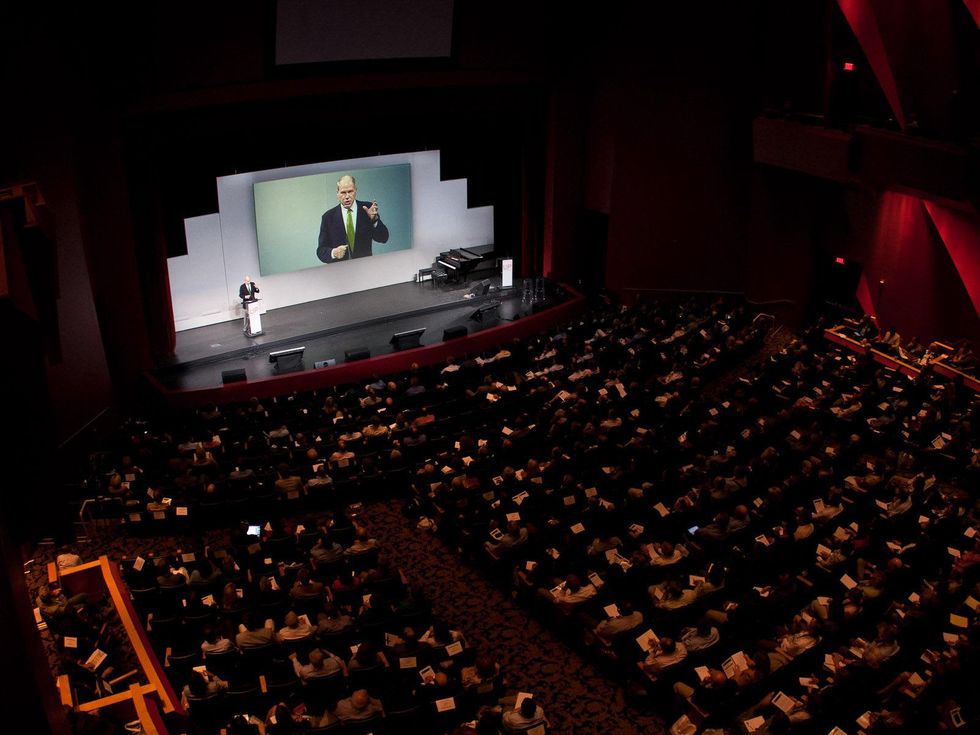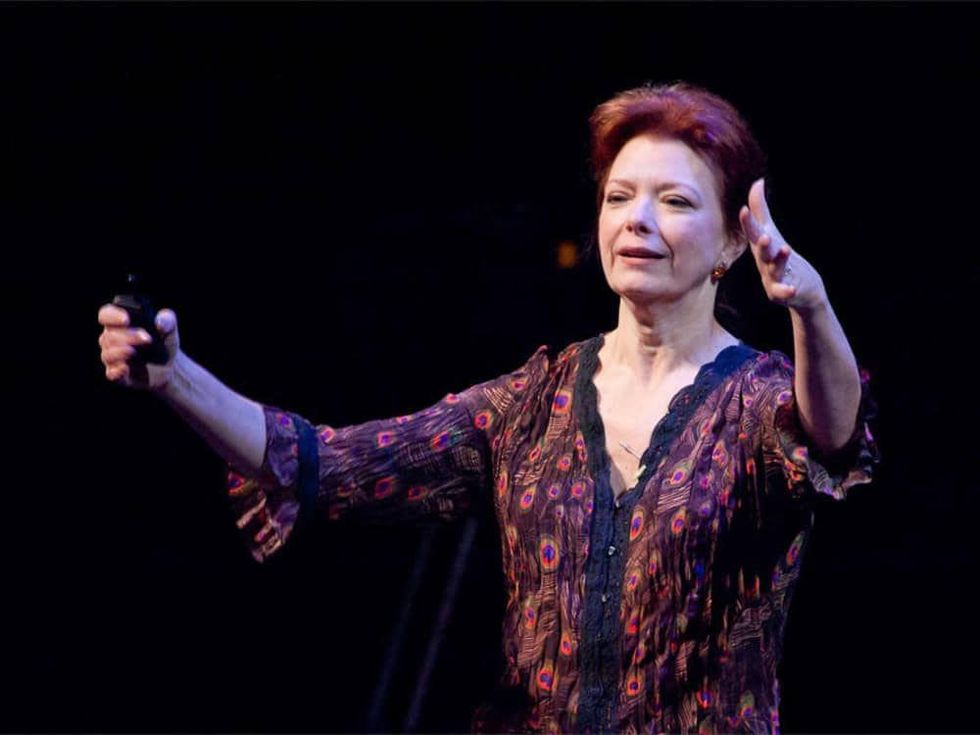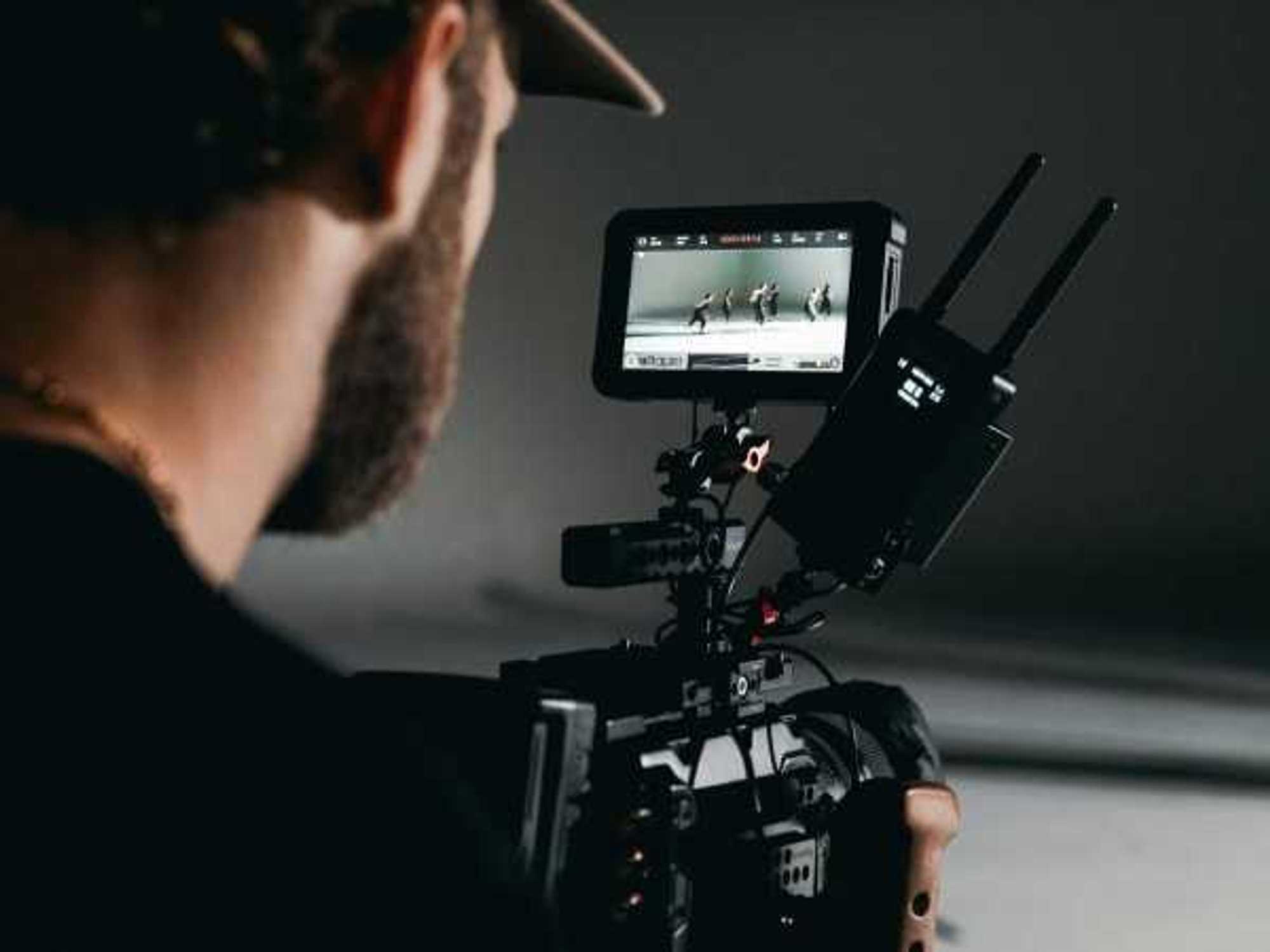The Arthropolgist
The theatrical art of public speaking: Whether it's UP, TEDx or Poitier, it's become an obsession

One stage, one human and a handful of ideas . . . so it goes in lecture land. The talk or lecture, be it an hour or 18 minutes, has been a growing presence on these shores.
This city is just teeming with smart people sharing their big thoughts. In fact, The UP Experience, featuring 16 big name speakers, is unfolding Thursday — the same day famous food guru Michael Pollen talks at The Progressive Forum of Houston.
I have watched many people stand in front of a hungry crowd trying to enchant us with their ideas. There's something so elemental about public speaking. There's rarely anything but a podium to hide behind. It's a brutal art form, like stand-up comedy without the jokes.
What makes a speaker compelling? I've heard the good, the great and the just plain incoherent.
James A. Leach mumbled through a talk on manners and civility at Rice University, however linguist George Lakoff talked a mile a minute at UT Health Science Services. Neither were particularly refined speakers, yet their potent content surpassed any need for slickness. Some are all about polished corporate style, such as Michael Eisner. Others just have a really cool idea to share, Carrie Schneider of Hear Our Houston for example.
Topics count too, but that's not enough. "Sometimes we love the topic, but the speaker lacks the passion to deliver it," Rapp says.
Brene Brown brought me to tears during her 2010 TEDx Houston talk, and Sal Khan had me hunting down algebra videos on Khan Academy. Both are 2011 UPsters.
Sheryl Rapp, co-founder of The UP experience, has the task of finding speakers who have something to say and can do it in 18 minutes, the short form format developed by TED.
"UP is designed to offer many voices and different points of view on important topics that you may not have thought about," Rapp says. "It's a pure surge of energy, ideas and the best intellectual thinking for our times."
Rapp diligently vets every speaker, either seeing them in person or via video, and it shows in the selection.
"You can have have more than two ideas in that time, and you want to leave the audience wanting more," Rapp says. "You also want to learn something."
Topics count too, but that's not enough. "Sometimes we love the topic, but the speaker lacks the passion to deliver it," Rapp says. She hopes UPsters leave charged and ready to change the world.
"You are stuck with the performing arts writer," I once told Randall Morton, founder of the Progressive Forum. "Well, a lecture is a bit like a performance," he shot back.
Morton is a man with a mission, to get fiercely intelligent progressive thought leaders out in front of Houston's public. His events have a festive atmosphere with like minds coming together. Morton leaves little to chance, as speakers have a structured agenda, with time to rest between a reception and dazzling the Wortham Center crowd.
"It's heavily choreographed," Morton says. Flowers grace the podium adding dash and splash, as does the theatrical setting.
Be Interesting, Not Staged
For Scott Brogan, founding director of the Brilliant Lectures Series, the speaker must have a compelling life narrative. And just because you are famous actor, doesn't mean you have the chops to tell it, either. Luckily, the guy up next on Nov. 7 is Sidney Poitier, who will speak on all that his life has encompassed.
"We need the lesson of the speaker's life," Brogan says. "I want them to impart their life story, the ups and the downs."
TEDx Houston organizer Javier Fadul, of Culture Pilot, looks for speakers who connect to the community.
"They need to talk with the audience, not to them," says Fadul, who has helped organized two TEDx events. Speakers are selected by a committee and vary widely in polish. Thus far, all have been Houston talent.
Last year, Neighborhood Centers president and CEO Angela Blanchard combined charm and a stunning message to make a point on neighborhood building. Despite the broad spectrum of talent among the speakers, the event fosters a wonderful sense of belonging. People come to learn and connect.
I found Wordpress founder Matt Mullenweg to be equally humble during his WordCamp keynote. That theory fell apart when Ed Schipul took the stage, sans PowerPoint.
I find technology speakers to be uber low key. Wired and The Well founder Kevin Kelly hardly moved from his folding chair center stage while he told us about the remarkable dependability of the Internet.
Dries Buytaert, founder of Drupal, just seemed to casually mention that the White House uses Drupal at SchipulCon 2011. Just another day at Drupal, I guess.
I found Wordpress founder Matt Mullenweg to be equally humble during his WordCamp keynote.
That theory fell apart when Ed Schipul took the stage, sans PowerPoint. Schipul was all passion, with bullet point take home ideas on business building from the trenches. I liked that he was unplugged, too.
Do I really need a photo of a flexible person when you are talking about adaptability? Let's stop with the obvious images, all the rage in business settings.
Sometimes, a theatrical performance borrows the form of a lecture, as in Suzanne Bocanegra's When a Priest Marries a Witch, directed by Big Dance Theater's Paul Lazar, on Nov. 1, presented by University of Houston Cynthia Woods Mitchell Center for the Arts at the Museum of Fine Arts, Houston's Brown Auditorium. Bocanegra's hybrid show combines an artist talk with a sound installation, as she delves into a story about a priest, an artist and a young girl from Pasadena, Texas.
I'm jazzed about Bill Moyers coming to Houston on Nov. 17 through the Progressive Forum. With Moyers, it's all there, message and meaning, passion and context, a life lived and drama to tell. In the end, that's what makes a lecture come to life, and therein lies its artfulness.
Brene Brown knocks it out of the park at the first TEDx, I suspect she will do it again at UP:
Bill Moyers will rock the Wortham on Nov. 17 through the Progressive Forum.
